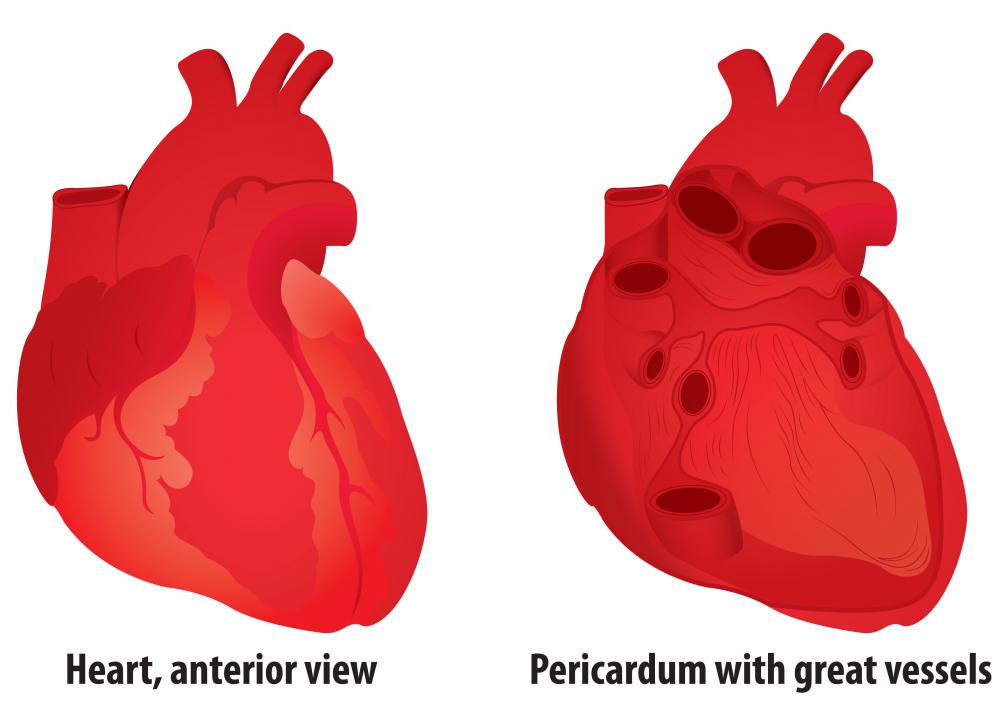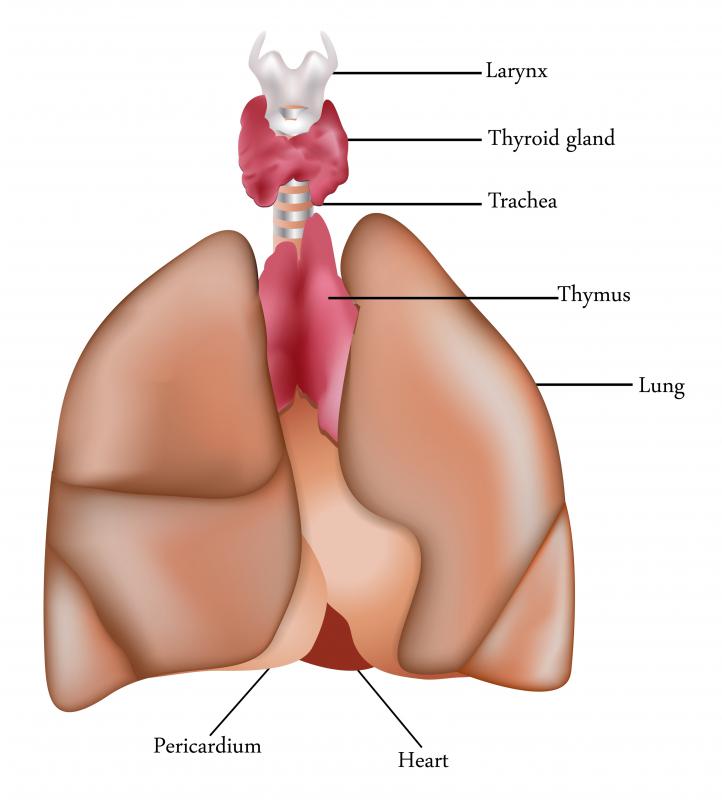At WiseGEEK, we're committed to delivering accurate, trustworthy information. Our expert-authored content is rigorously fact-checked and sourced from credible authorities. Discover how we uphold the highest standards in providing you with reliable knowledge.
What Is the Function of the Pericardium?
The pericardium is a double-layered, thin yet strong membrane surrounding the heart and roots of the major blood vessels leading into and out of the organ. It plays an important role in protecting and stabilizing the heart. The membrane also provides lubrication for the cardiac surface and keeps the organ from becoming too large by limiting the amount of space in which it can grow.
The membrane is located behind the sternum and cartilage of the third through seventh ribs on the left side of the chest cavity. The inner layer, also called the epicardium, is a thin layer made up of mesothelial cells, specialized cells that line the chest and abdominal cavity. The outer layer, called the parietal pericardium, consists of fibrous collagen tissue and elastic fibrils. The space between the two layers is filled with fluid that drains into the lymphatic and thoracic ducts.

Stabilizing and anchoring the heart is an important function of the pericardium. Its ligamentous attachments hold the heart in the proper place within the thoracic cavity and keep the organ from moving. The membrane also protects the heart from damage and infection that can occur in organs and body structures near the organ, and from damage caused by external blows to the chest area.

The pericardial fluid helps lubricate the heart and decrease the amount of friction on the cardiac surface when the heart beats. An excess amount of fluid, however, can be dangerous. The condition, called pericardial effusion, puts too much pressure on the heart and prevents the ventricles from properly filling. Pericardial effusion can be diagnosed through an echocardiogram. Treatment for this condition may include anti-inflammatory medications or invasive surgical procedures.

Serious complications can arise when the pericardium develops an infection. Pericarditis, or inflammation of the pericardium, usually occurs suddenly and can last up to several months. Symptoms include difficulty breathing and sharp chest pain that may increase when coughing or lying flat. The condition may also cause gastrointestinal symptoms, such as heartburn or indigestion. Treatment for mild cases of pericarditis includes large doses of non-steroidal anti-inflammatory medications, other anti-inflammatory medications.

Severe cases of pericarditis can cause the layers of the membrane to thicken, form scar tissue, and fuse together or with the surface of the heart. This condition, called constrictive pericarditis, prevents the heart from fully expanding when blood rushes into the organ, which disrupts the normal blood flow pattern. Treatment typically involves surgery to remove the hardened part of the pericardium.
AS FEATURED ON:
AS FEATURED ON:
















Discussion Comments
The heart has a lot of help to keep it in the right place, protect it from infections, and lubricate it. The pericardium, in two layers, helps to lubricate the heart also.
Being a support system for the heart, many things can go wrong with the pericardium. Too much lubrication can cause problems. And the part that is supposed to prevent inflammation and infection can become infected itself.
It's hard to protect yourself from these problems. I think the best you can do is eat nutritiously, exercise, and try to live a less stressful life.
Post your comments